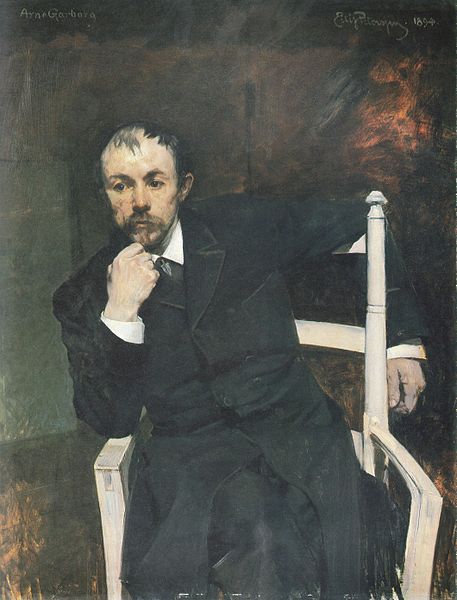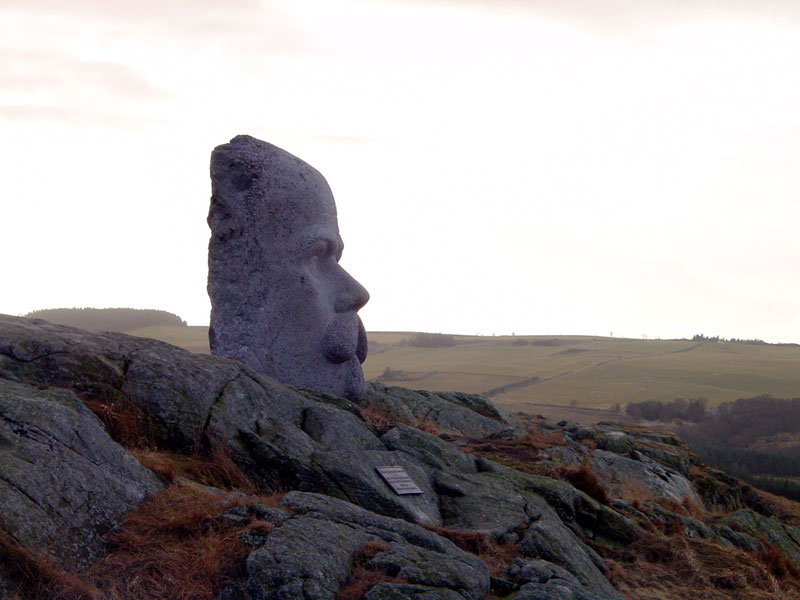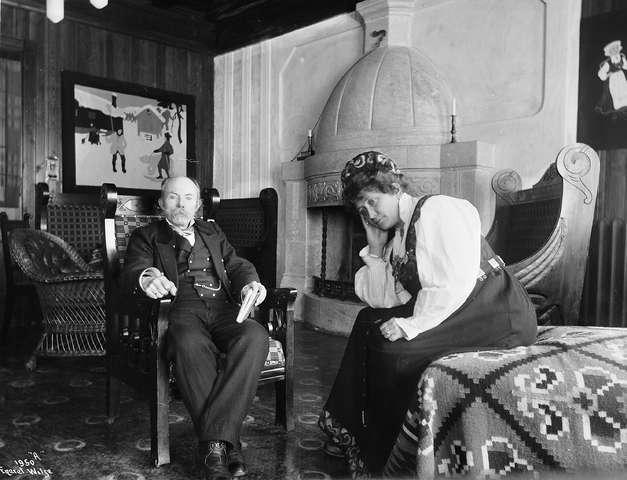<Back to Index>
- Surgeon James Marion Sims, 1813
- Writer Aadne Eivindsson Garborg (Arne Garborg), 1851
- Prime Minister of Belgium Paul Henri Charles Spaak, 1899
PAGE SPONSOR


Arne Garborg, born Aadne Eivindsson Garborg (25 January 1851, Time - 14 January 1924) was a Norwegian writer.
Garborg championed the use of Landsmål (now known as Nynorsk, or New Norwegian), as a literary language; he translated the Odyssey into it. He founded the weekly Fedraheim in
1877, in which he urged reforms in many spheres including political,
social, religious, agrarian, and linguistic. He was married to Hulda Garborg. Garborg grew up on a farm named Garborg, near Undheim, in Time municipality at Jæren in Rogaland county.
He grew up together with eight siblings. Although he was to become
known as an author, it was as a newspaperman that he got his start. In
1872 he established the newspaper Tvedestrandsposten, and in 1877 the Fedraheimen, which he served as managing editor until 1892. In the 1880s he was also a journalist for the Dagbladet. In 1894 he laid the ground, together with Rasmus Steinsvik, for the paper Den 17de Mai; which changed its name to Norsk Tidend in 1935. His
novels are profound and gripping while his essays are clear and
insightful. He was never inclined to steer clear of controversy. His
work tackled the issues of the day, including the relevance of religion
in modern times, the conflicts between national and European identity,
and the ability of the common people to actually participate in
political processes and decisions. "It
is said that for money you can have everything, but you cannot. You can
buy food, but not appetite; medicine, but not health; knowledge, but
not wisdom; glitter, but not beauty; fun, but not joy; acquaintances,
but not friends; servants, but not faithfulness; leisure, but not
peace. You can have the husk of everything, but not the kernel."
